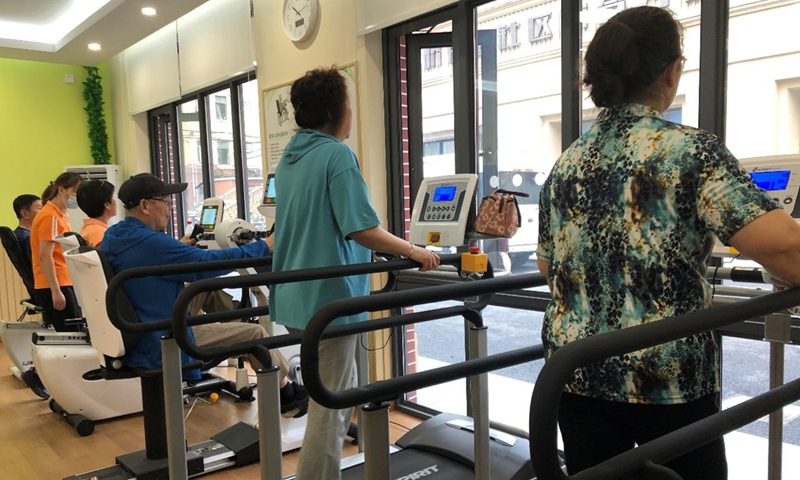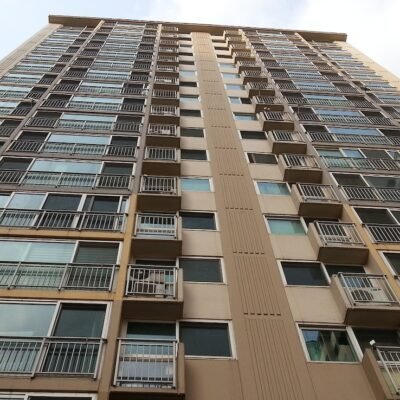
Senior citizens exercise in a fitness club for elder residents only, in Hongqiao subdistrict, Changning, Shanghai. File Photo: Global Times
In preparation for the annual two sessions, some political advisors are preparing proposals aimed at improving the care system for the elderly and stimulating the vitality of the silver economy.
He Dan, a member of the National Committee of the Chinese People’s Political Consultative Conference (CPPCC) and the director of the China Population and Development Research Center, has been actively researching specific proposals to improve the care system for elderly individuals who have lost the ability to care for themselves. Her focus includes accelerating the mutual recognition of long-term care insurance across regions and strengthening care skills training.
Over the past year, she has conducted research in Southwest China’s Sichuan and Guizhou provinces, North China’s Inner Mongolia Autonomous Region and other regions in an attempt to study the issue of caring for those elderly individuals in need of help, according to China Central Television.
Latest data from the National Bureau of Statistics this January showed that the number of people aged 60 or older reached 310 million in 2024, or 22 percent of the total population.
As a scholar in the field of demography, He Dan said she believes that the true challenges of China’s aging population are yet to come, and policies to address aging must be forward-looking.
Echoing He Dan’s concerns, another political advisor Liu Meilin will call for high-quality elderly medical care services to drive the “silver economy” and safeguard the health of the elderly.
Liu emphasized the need to mobilize more social forces to support elderly care, in addition to the government’s introduction of a series of policy measures in this area, as reported by Science and Technology Daily. Drawing on her expertise, Liu has been exploring the unique characteristics and treatment methods of elderly diseases, contributing to the improvement of comprehensive management strategies and the optimization of diagnosis and treatment plans.
Song Jian, a demographer from the Center for Population and Development Studies at Renmin University of China, told the Global Times that during this year’s two sessions improving the supporting policies of incrementally raising the statutory retirement age may be discussed.
Starting from January 1, 2025, the statutory retirement age for men will be gradually raised from 60 to 63 over a period of 15 years, and for women cadres the age will be raised from 55 to 58, and for women blue-collar workers from 50 to 55.
Song also highlighted the potential of artificial intelligence (AI) to revolutionize elderly care. How to leverage AI to empower elder care is expected to be a central topic during the two sessions.
“Vigorously developing an AI-powered silver economy can not only meet the consumption needs of the elderly, improve their well-being and expand domestic consumption but also tap into new economic drivers through labor compensations,” she said.
Ahead of the annual two sessions, a themed research group from the CPPCC traveled to Shanghai to gather insights on promoting the silver economy, according to CPPCC Daily.
The research team believes that the silver economy serves as a significant engine for driving high-quality economic development and an essential means for boosting employment and ensuring people’s livelihoods.





